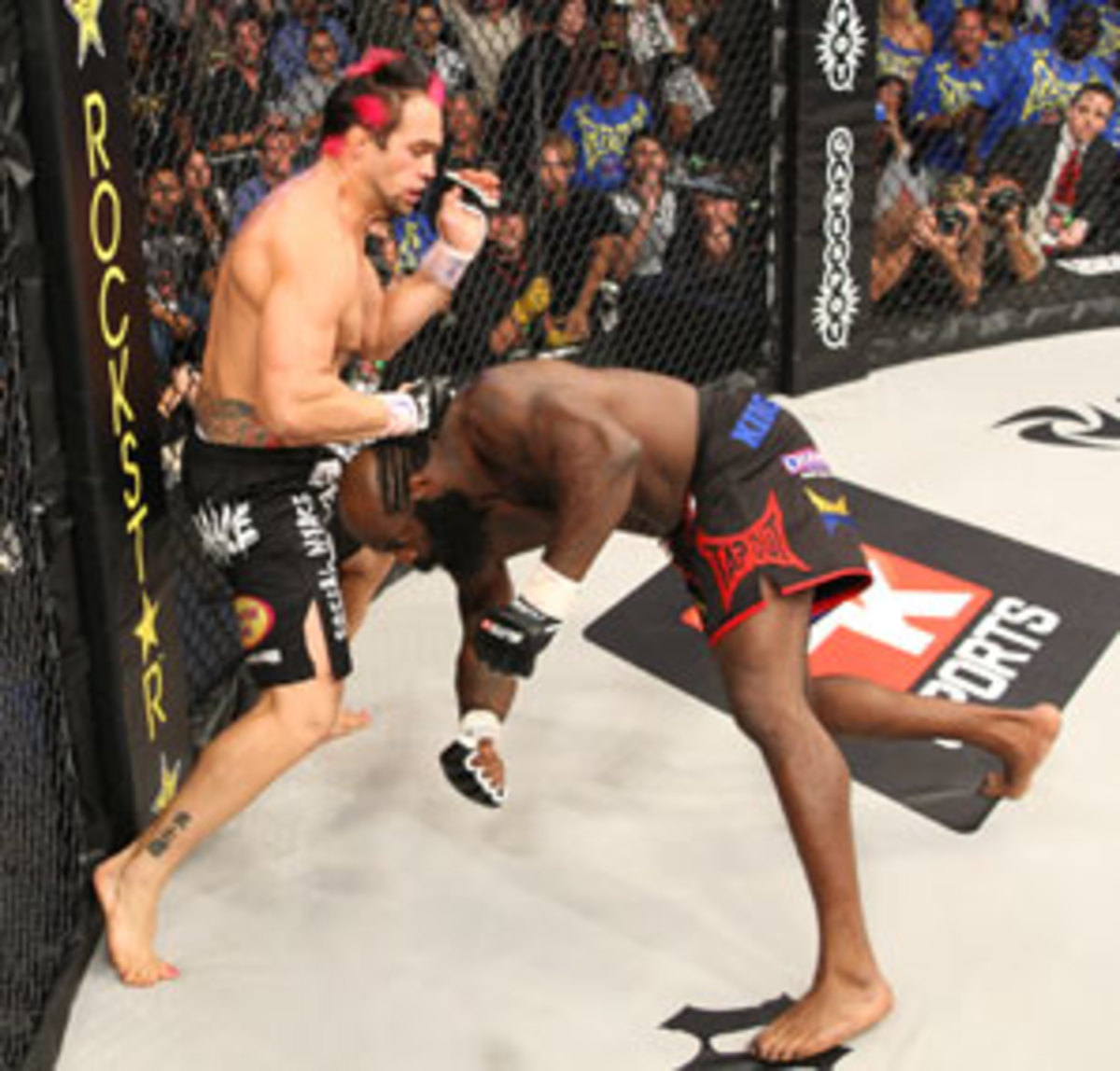The star that never was
At the height of his mythology as the "King of the Web Brawlers," so dubbed by Rolling Stone, rumors circulated on the Internet about Kevin "Kimbo Slice" Ferguson.
There was the one about him serving 10 to 20 years in prison. Another that he'd taken a man's life. And then there was one that claimed the Miami native had a disabled brother.
"[His brother's] big. He's normal. He's fat. ... He's far from handicapped," said "Icey" Mike Imber, Slice's manager and high school friend who carries himself like Turtle from Entourage. (The other rumors were shot down as well.)
The point is people were talking. Suddenly, Slice had an audience to captivate. Before anyone knew it, interest had ballooned to where the street brawler was making a name for himself on prime-time television.
But there was a problem, and people soon took notice. Slice wasn't, and still isn't, a mixed martial artist. He casts a mean shadow and throws some heavy punches, but after Saturday night at EliteXC: Heat, Slice will no longer be thought of as MMA's Mike Tyson by even the most casual observer. As a professional, he's simply nowhere near that good, and never should have been sold that way.
Why anyone would expect otherwise is baffling. In his mid-30s, Slice walked into a situation he admittedly was not prepared for. He could deliver a punch and take one back, but that was the extent of his fighting acumen. It was like asking a local long-drive champion to step up his game for the PGA Tour.
So, Slice worked with Bas Rutten, a noted expert, trainer and former champion in the fight game. Remaining humble in the face of media, Slice earned the recognition and, even admiration, by many. He came off as menacing and nice -- a rare combination.
In an industry where winning is the bottom line, though, maintaining celebrity as a perceived loser isn't a way to sell yourself (ask Anna Kournikova). But because MMA is a non-traditional sport, elevated by the passion of its hardcore fan base, it's unclear whether normal expectations of sports stars will apply to Slice. You can be sure the media will take him to task, but will fans shape their opinions around the words of columnists? Or is EliteXC fight operations chief, Jeremy Lappen, correct in saying "people are interested in watching" Kimbo?
"The thing that makes somebody a star is they have that 'x-factor,'" Lappen said. "And Kimbo has that."
But there is a strain of thought among some MMA devotees that counters everything Vince Lombardi stood for. They believe winning isn't end-all, so long as the crowd is entertained. EliteXC officials are overwhelmingly in this camp after Slice's 14-second misadventure.
"The true test of a champion and a warrior is how they respond to this," Lappen said. "We'll see how Kimbo responds. I think he'll step up because I believe in him. This is only his fourth fight. He was put in a very tough situation. He showed to me that he has the heart to step in there, and he got caught."
True, some legends have lost. Randy Couture fell in eight of his 24 fights, yet you rarely hear criticism of his record because he's been in there with the best. EliteXC has to hope the Kimbo Slice hype-job hasn't also turned casual fans away from wanting to watch the promotion's skilled fighters, like Robbie Lawler, Jake Shields and, especially, Gina Carano.
And though Slice may have the market cornered on name appeal, he hardly holds a monopoly when it comes to heart. Fighters worldwide have accepted short notice bouts, stepped in a ring or cage at something less than a 100 percent, battled three, sometimes four times in one night.
Grit is a prerequisite for fan attention. Winning ensures lingering curiosity.






